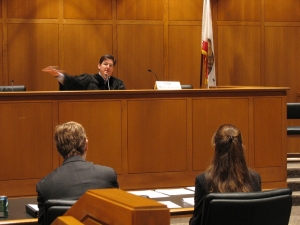By: Rolf Garcia-Gallont
Today, in United States v. King, the Fourth Circuit affirmed by unpublished per curiam opinion the sentences against Donnie King, Sr., (“Mr. King”) and Lou Wells King (“Mrs. King) for making materially false and fraudulent misrepresentations in relation to their Chapter 11 bankruptcy proceeding.
On appeal, the Kings contended that (1) the Government breached its plea agreements with the Kings by moving to be relieved of its obligations under the plea agreements; (2) the district court erred in permitting the Government to be relieved of its obligations under the plea agreements; (3) the Government committed prosecutorial misconduct by moving for relief from its obligations under the plea agreements; and (4) Mr. King’s sentence was unreasonable. Because the Kings did not raise these claims at trial, the Circuit Court reviewed for plain error.
Because the Kings Committed a Material Breach of the Plea Agreements, the Government Was Entitled to Move for Relief of its Obligations Under the Plea Agreement . Therefore, the Government’s Motion Was Neither a Breach of the Agreement nor Prosecutorial Misconduct.
The Kings were required by the plea agreements to abide by any conditions of release before their sentencing. One such condition was that the Kings abide by federal law. The Kings subsequently filed a false tax return in violation of federal law.
The Fourth Circuit held that as a matter of contract interpretation, this violation constituted a material breach of the plea agreements, and that the Government was entitled to move for relief of its own obligations. In light of the Kings’ material breach, the district court did not err in granting that relief. Additionally, because the Government was entitled to relief, moving to request it did not constitute prosecutorial misconduct.
Mr. King Waived His Right to Appeal the Reasonableness of His Sentence
As part of his plea agreement, Mr. King agreed to a broad waiver of his right to appeal. Because the record of Mr. King’s Rule 11 colloquy showed that Mr. King knowingly and intelligently agreed to the waiver, the Court held that the waiver was valid. Finally, the Court held that Mr. King’s attempt to appeal the reasonableness of his sentence was within the scope of his appeal waiver, and dismissed the appeal of his sentence.




